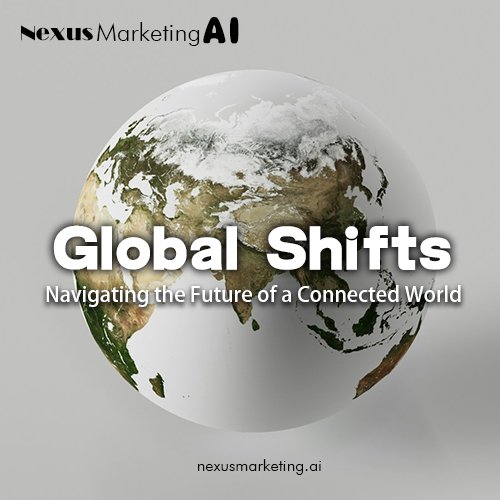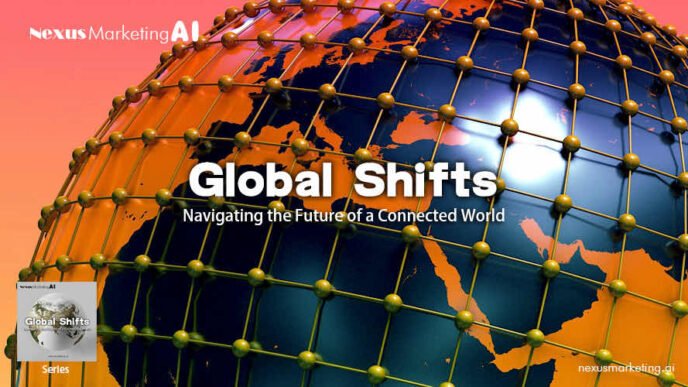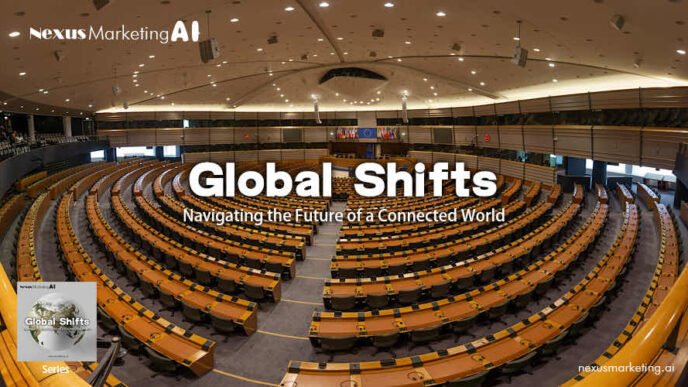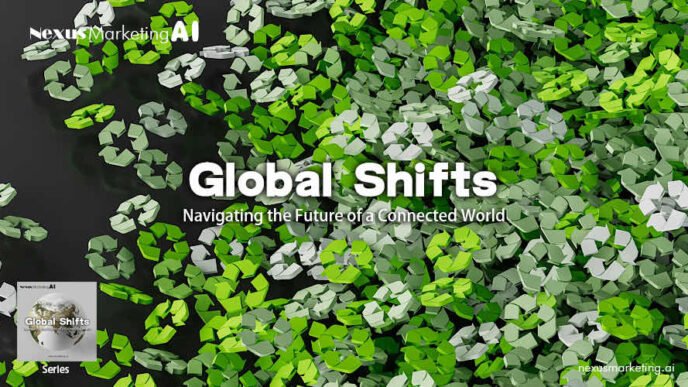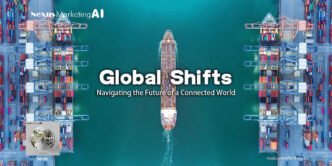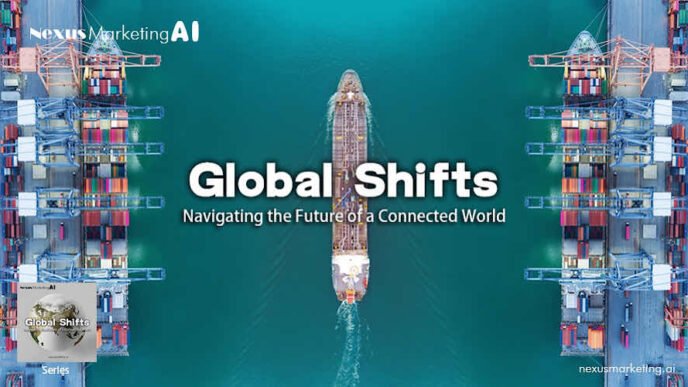Learn the fundamentals of globalization in this comprehensive guide, exploring its impact on economies, cultures, and global trade.
Global Shifts
Navigating the Future of a Connected World
As the world becomes more interconnected, the forces driving globalization have far-reaching impacts on economies, businesses, and societies. This series dives deep into the core elements shaping today’s global landscape, from technological innovation and economic integration to cultural exchange and environmental sustainability.
Through a comprehensive exploration of these topics, “Global Shifts” offers thought-provoking insights into how businesses can adapt to this rapidly changing environment. Whether you’re a leader aiming to stay ahead of global trends or a professional seeking to understand the shifting dynamics of global trade, this series provides the essential knowledge to navigate the future of globalization.
Series
- Episode1.Globalization 101: Understanding the Basics
- Episode2.Economic Globalization: Trade and Investment Flows
- Episode3.Technological Globalization: The Role of Digitalization
- Episode4.Cultural Globalization: Cross-cultural Exchange and Influence
- Episode5.Political Globalization: Global Governance and Multilateralism
- Episode6.Sustainability in Globalization: Environmental Impact and Solutions
- Episode7.Global Supply Chains: Challenges and Opportunities
- Episode8.The Future of Globalization: Trends and Predictions
- Episode9.Challenges of Globalization: Inequality and Social Impacts
- Episode10.Globalization and Innovation: How Companies Stay Competitive
Table of Contents

Prefer to listen? Enjoy the audio version of this article
Curated audio version | Audio powered by AI
What is Globalization?

Globalization is a term that defines the increasing interconnectedness of the world’s economies, cultures, and populations. In essence, it is the process by which businesses, governments, and people around the globe become more closely linked through trade, communication, and technology. Over the past few decades, globalization has fundamentally transformed industries and societies, breaking down barriers and fostering cross-border cooperation.

Definition of Globalization
At its core, globalization refers to the expansion and integration of international trade, investment, information, technology, and cultural exchanges. This phenomenon has allowed countries to participate in a global economy, where goods, services, and ideas flow more freely than ever before. It has opened up new opportunities for economic growth, innovation, and collaboration, but it has also introduced challenges such as increased competition and income inequality.

Historical Context
The roots of globalization stretch back thousands of years, to when trade routes such as the Silk Road connected Europe and Asia, facilitating the exchange of goods, ideas, and cultures. However, the pace of globalization accelerated dramatically during the 20th century, particularly after World War II. The advent of modern technology, such as the internet and jet travel, further reduced the barriers of time and distance, allowing businesses to expand their operations globally with unprecedented ease. This marked the beginning of an era where the economies of different nations became more closely integrated and interdependent.
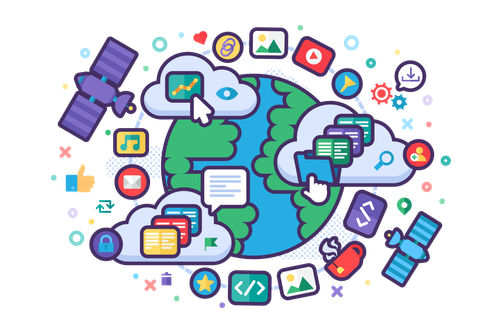
The Importance of Globalization
Understanding globalization is crucial because it shapes nearly every aspect of modern life. From the products we use to the cultural influences that shape our societies, globalization is a driving force behind many of the trends we see today. It has reshaped industries, influenced political relationships, and transformed the way people communicate and interact. Whether it’s a multinational corporation expanding into new markets or individuals connecting across continents through social media, globalization plays a key role in shaping the modern world.
The Key Drivers of Globalization

Globalization is not a random or spontaneous process. It has been driven by several key factors that have significantly shaped its trajectory. These drivers include economic integration, technological advancements, improvements in transportation and logistics, and increased cultural exchange. Each of these elements plays a crucial role in connecting nations and promoting the free flow of goods, services, information, and people.

Economic Integration
Economic integration has been one of the most significant drivers of globalization. With the creation of trade agreements, such as the North American Free Trade Agreement (NAFTA) and the European Union (EU), countries have progressively opened up their markets to international trade. The removal of tariffs, quotas, and other trade barriers has facilitated a smoother and more efficient exchange of goods and services across borders.
Foreign Direct Investment (FDI) has also played a crucial role in this process. As businesses seek new opportunities for expansion, they invest in foreign markets, creating jobs, fostering innovation, and driving economic growth. This has led to an interconnected global economy where the success of one nation’s economy can have a ripple effect on others.

Technological Advancements
The rapid pace of technological innovation, particularly in information and communication technologies (ICT), has dramatically accelerated globalization. The internet, for example, has revolutionized how businesses and individuals communicate, enabling companies to coordinate operations across multiple countries in real-time. Similarly, advancements in data analytics, artificial intelligence, and cloud computing have allowed businesses to optimize global supply chains and enter new markets more effectively.
Technological advancements have also facilitated the rise of e-commerce, where businesses of any size can sell products and services worldwide. Platforms like Amazon, Alibaba, and Shopify have created a global marketplace that allows consumers and companies to connect across borders effortlessly. Technology has not only reduced the cost of doing business internationally but has also made the world more accessible.

Transportation and Logistics
The evolution of transportation and logistics systems has been another critical factor driving globalization. The development of container shipping, faster air travel, and more efficient logistics networks has made it possible for goods to be transported across vast distances in less time and at a lower cost. For instance, containerization, a system of transporting goods in large containers, has drastically reduced shipping costs and simplified the movement of goods internationally.
Additionally, the expansion of global logistics networks, including multinational shipping companies and integrated supply chains, has made it easier for businesses to operate across borders. As transportation and logistics continue to improve, the world becomes more connected, enabling businesses to reach new markets and consumers with greater ease.

Cultural Exchange
Globalization is not just an economic and technological phenomenon—it also involves the exchange of ideas, values, and cultural practices across borders. Cultural globalization is facilitated through various means, including media, travel, and the movement of people. For example, international films, music, and fashion trends spread rapidly, influencing cultures and societies worldwide.
Additionally, immigration and international education have played vital roles in cultural exchange. As people move to different countries for work or study, they bring with them their cultural heritage, enriching the societies they enter. This has led to a greater understanding of diverse cultures and the creation of a more interconnected global society.
The Main Types of Globalization

Globalization is a multifaceted process that affects various aspects of life, from economies and cultures to politics and technology. To fully understand globalization, it’s essential to explore its different types and the unique ways in which they impact societies and the global system. The four main types of globalization include economic, cultural, political, and technological globalization, each contributing to the growing interconnectedness of the world.
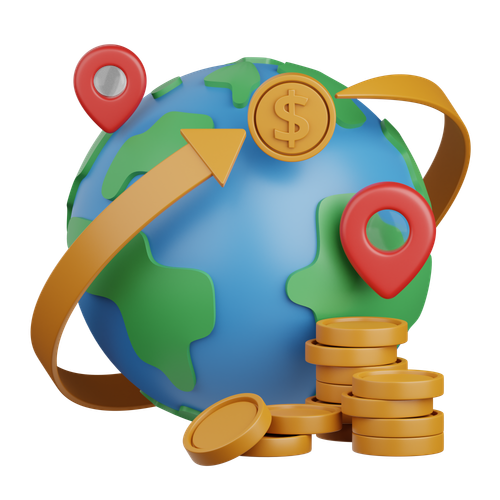
Economic Globalization
Economic globalization refers to the increasing integration of national economies through trade, investment, and financial flows. Over the past several decades, global trade has expanded significantly, allowing goods and services to move more freely across borders. This has been facilitated by the reduction of tariffs and trade barriers, the growth of multinational corporations, and the rise of global supply chains.
Economic globalization also includes the spread of financial markets, with capital now flowing more easily between countries. International investment and the operation of global financial institutions, such as the International Monetary Fund (IMF) and the World Bank, have created a more interconnected and interdependent global economy. This interconnectedness means that economic events in one part of the world can have ripple effects on economies elsewhere, as seen during the 2008 global financial crisis.

Cultural Globalization
Cultural globalization is the process by which cultural elements—such as ideas, beliefs, languages, values, and practices—are spread across national borders. Media and entertainment play a critical role in this type of globalization, with movies, television shows, music, and social media platforms contributing to the global spread of culture. The influence of Western culture, particularly through Hollywood films, popular music, and global brands like McDonald’s and Nike, has been one of the most visible aspects of cultural globalization.
However, cultural globalization is not a one-way street. While some cultures dominate globally, others influence and contribute to the cultural melting pot, enriching global diversity. For example, the global popularity of Japanese anime or South Korean K-pop reflects the influence of non-Western cultures in the global arena.

Political Globalization
Political globalization involves the growing influence of international organizations and transnational actors in shaping global governance. Organizations like the United Nations (UN), the World Trade Organization (WTO), and the World Health Organization (WHO) play significant roles in creating and enforcing international laws and policies. These institutions work to address global challenges that cannot be managed by individual countries alone, such as climate change, international trade, and pandemics.
Political globalization also encompasses the growing trend of countries entering into regional or global agreements, such as the Paris Climate Agreement, aimed at fostering collaboration on pressing global issues. While political globalization enhances cooperation between nations, it also raises concerns about the erosion of national sovereignty, as some view international agreements as limiting a country’s ability to govern itself independently.

Technological Globalization
Technological globalization refers to the rapid spread of technology and technological innovation across the globe. This type of globalization has been a major catalyst for the other forms, particularly economic and cultural globalization. The internet, mobile technology, and satellite communication systems have drastically transformed how information is shared and how people connect, enabling real-time communication across continents.
In addition, technological globalization has revolutionized industries, from manufacturing to healthcare, and has led to significant advancements in productivity and innovation. Technologies like artificial intelligence (AI), blockchain, and the Internet of Things (IoT) are changing the way global businesses operate, further integrating national economies and enhancing global connectivity.
The Impact of Globalization on the World

Globalization has had profound effects on various aspects of life, spanning economic, social, political, and environmental domains. While it has opened new opportunities for growth, innovation, and collaboration, it has also introduced significant challenges. Understanding the full range of globalization’s impacts is key to comprehending its complex role in shaping the modern world.

Economic Impact
Globalization has transformed the global economy, driving unprecedented growth and development. International trade, investment, and market integration have allowed countries to specialize in industries where they have a comparative advantage, increasing efficiency and productivity. As a result, consumers worldwide have benefited from a broader range of goods and services at lower prices, while businesses have gained access to new markets and supply chains.
However, globalization has also contributed to economic disparities. While some countries and regions have prospered, others have struggled to adapt to the demands of a globalized economy. The benefits of globalization are often unevenly distributed, leading to increased income inequality both within and between countries. Globalization has also been linked to the outsourcing of jobs, particularly in developed economies, as companies seek to reduce costs by shifting production to lower-cost countries.

Social and Cultural Impact
On a social and cultural level, globalization has had a significant influence on how people live, work, and interact. One of the most visible impacts of globalization is the spread of cultural products and practices across borders. Movies, music, fashion, and food from different parts of the world are now consumed globally, leading to the blending of cultures. This cultural exchange has promoted greater understanding and appreciation of diversity, contributing to a more interconnected global society.
However, cultural globalization has also sparked concerns about cultural homogenization, where dominant cultures, particularly Western ones, overshadow local traditions and identities. As global brands and media permeate even the most remote areas, local cultures may struggle to preserve their unique practices, leading to a loss of cultural diversity.

Political Impact
Political globalization has reshaped international relations and governance structures. Countries are increasingly part of a global political landscape, where cooperation and collaboration on issues like climate change, security, and trade are necessary. International organizations such as the United Nations (UN), the World Trade Organization (WTO), and the International Monetary Fund (IMF) have become key players in global governance, setting rules and norms that guide international cooperation.
However, this increased political interdependence can also lead to tensions. Critics of political globalization argue that it undermines national sovereignty, as international agreements and institutions may impose constraints on a country’s domestic policies. Moreover, globalization has sometimes heightened geopolitical competition, as nations vie for influence in an increasingly interconnected world.

Environmental Impact
Globalization has had both positive and negative effects on the environment. On the positive side, increased global cooperation has led to more concerted efforts to address environmental issues, such as climate change, biodiversity loss, and pollution. International agreements, such as the Paris Agreement on climate change, have brought nations together to set targets for reducing carbon emissions and protecting the planet.
On the negative side, the expansion of global trade and industrial activity has led to significant environmental degradation. The growth of global supply chains has increased transportation and resource extraction, contributing to air and water pollution, deforestation, and the overuse of natural resources. The environmental cost of globalization is becoming an urgent issue, prompting discussions on how to balance economic growth with sustainability.
The Challenges and Criticisms of Globalization

While globalization has brought about numerous benefits, such as economic growth, cultural exchange, and technological advancement, it has also been the subject of considerable criticism. Many argue that the process of globalization has exacerbated inequality, threatened national sovereignty, and contributed to environmental degradation. These challenges present significant obstacles to the long-term sustainability and inclusiveness of globalization.

Economic Inequality
One of the most prominent criticisms of globalization is its role in deepening economic inequality, both within and between nations. While globalization has enabled some countries and regions to prosper, it has left others behind. Wealthier, developed nations and large multinational corporations have often benefited disproportionately, while poorer, developing countries struggle to compete in the global market. This disparity can be seen in wage gaps, access to resources, and economic opportunity.
Furthermore, within countries, globalization has contributed to income inequality by displacing certain industries and workers, particularly in developed economies. The offshoring of manufacturing jobs to countries with lower labor costs has led to job losses and wage stagnation for workers in industries that have become less competitive. As a result, while consumers may benefit from lower-priced goods, workers in certain sectors face economic hardship.

Cultural Homogenization
Cultural homogenization is another significant challenge posed by globalization. As global brands, media, and cultural products spread across borders, there is concern that dominant cultures—especially Western cultures—are overshadowing and eroding local traditions and identities. Globalization can lead to a “one-size-fits-all” culture, where diversity and unique cultural practices are lost in favor of more mainstream, globalized norms.
For example, fast-food chains, Hollywood films, and global fashion brands often replace local food, cinema, and fashion in many parts of the world, reducing cultural diversity. Critics argue that this cultural dominance threatens to diminish the richness of cultural traditions, languages, and practices that make different societies unique.

Loss of National Sovereignty
Globalization often requires countries to align their policies with international norms and agreements, which can be perceived as a threat to national sovereignty. As countries become more integrated into the global economy, they may find themselves subject to external pressures from multinational corporations, international organizations, and other governments. This can limit a country’s ability to make independent decisions on trade, environmental regulations, labor laws, and other domestic issues.
For instance, international trade agreements often require countries to open their markets to foreign competition, which can undermine local industries and economies. Similarly, global financial institutions like the International Monetary Fund (IMF) and the World Bank sometimes impose economic reforms on countries in exchange for financial aid, reducing their ability to control their own economic policies.
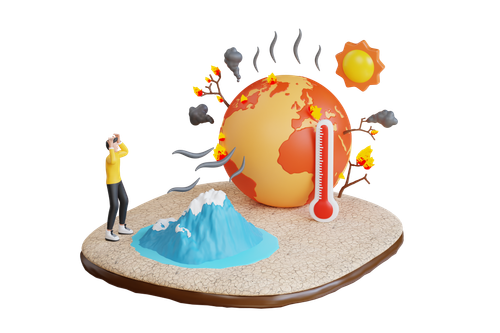
Environmental Concerns
As discussed earlier, globalization has also been criticized for its negative impact on the environment. The rapid expansion of global trade and industrial activity has led to an increase in the exploitation of natural resources, pollution, and environmental degradation. The transportation of goods across long distances, deforestation for agricultural production, and the extraction of fossil fuels have all contributed to global environmental issues such as climate change, air and water pollution, and loss of biodiversity.
The challenge lies in balancing the benefits of globalization with the need for sustainable practices. As global production and consumption patterns continue to grow, the strain on the environment intensifies, raising urgent questions about how to mitigate the environmental damage associated with globalization while still allowing for economic growth and development.
Why Understanding Globalization Matters

Globalization is an ongoing and ever-evolving phenomenon that has reshaped the world in countless ways. From economies and industries to cultures and governance, the forces of globalization continue to influence how nations and individuals interact on a global scale. While it presents vast opportunities for growth, innovation, and collaboration, it also brings with it significant challenges, such as inequality, environmental degradation, and threats to cultural diversity and national sovereignty.

The Ongoing Nature of Globalization
Globalization is not a static event; it is a dynamic process that continues to evolve with advancements in technology, shifts in political landscapes, and changes in global economic systems. As new developments arise—such as the digital economy, emerging markets, and shifts in geopolitical power—globalization will continue to transform how the world operates. Businesses, governments, and individuals must remain adaptable to these changes to thrive in a globally interconnected environment.

Globalization in the 21st Century
In the 21st century, globalization is increasingly shaped by digital transformation and the rise of new technologies. The digital economy, driven by e-commerce, social media, and artificial intelligence, is breaking down barriers even further, enabling real-time communication and commerce on a global scale. Simultaneously, regionalization and protectionist policies in some parts of the world signal potential shifts in how globalization unfolds in the future. Understanding these trends will be key to navigating the complexities of globalization in the years to come.

Preparing for the Future
As globalization continues to evolve, individuals, businesses, and governments must prepare to address its challenges while leveraging its opportunities. For businesses, this means adapting to new global market dynamics, embracing technological innovations, and promoting sustainability. For governments, it involves creating policies that balance national interests with global responsibilities. And for individuals, it means developing the skills and cultural awareness necessary to thrive in an increasingly interconnected world.

Link to Next Episode:Economic Globalization
With a deeper understanding of what globalization is and the forces driving it, the next step is to explore how it specifically impacts international trade and investment. In the next episode, we will dive into “Economic Globalization: Trade and Investment Flows”, examining how global trade agreements, foreign direct investment, and multinational corporations shape the global economy.
FAQs
-
What is the main driving force behind globalization?
Globalization is primarily driven by advancements in technology, trade liberalization, and international investments. Technology, particularly the internet and digital communication, has reduced barriers to trade and made it easier for businesses to operate across borders. Additionally, free trade agreements and economic policies that promote cross-border investments have accelerated global integration.
-
How does globalization affect developing countries?
Globalization can have both positive and negative effects on developing countries. On the positive side, it can lead to increased access to markets, foreign investment, job creation, and technology transfer. However, it can also lead to economic dependency, environmental degradation, and exploitation of labor if not managed properly. The impact varies significantly depending on a country’s policies, governance, and ability to integrate into global markets.
-
What role do international organizations play in globalization?
International organizations, such as the World Trade Organization (WTO), International Monetary Fund (IMF), and World Bank, play crucial roles in facilitating globalization by setting rules for international trade, providing financial assistance, and promoting economic stability. These organizations help resolve trade disputes, support economic development, and assist countries in integrating into the global economy.
-
How does globalization impact cultural diversity?
Globalization promotes cultural exchange and increases access to diverse cultural products, such as music, food, and fashion. However, it can also lead to cultural homogenization, where dominant cultures overshadow local traditions and identities. This dual impact makes cultural preservation and promotion of local heritage increasingly important in a globalized world.
-
What are the economic benefits of globalization?
Globalization offers several economic benefits, including access to larger markets, increased efficiency through competition, lower consumer prices, and the spread of innovation. Companies can access a broader customer base, scale their operations globally, and leverage international supply chains to reduce costs and increase profits.
-
Can globalization be reversed or slowed down?
While complete reversal of globalization is unlikely, its pace and direction can be influenced by political, economic, and social factors. Trade wars, protectionist policies, and geopolitical tensions can slow down global integration. However, technology and the interconnected nature of the world economy make a full-scale reversal of globalization impractical.
-
How does globalization affect income inequality?
Globalization can contribute to income inequality by favoring skilled workers and industries that are well-integrated into global markets, often at the expense of low-skilled workers and traditional sectors. While it creates wealth and opportunities, the distribution of these gains is often uneven, leading to a widening gap between the rich and the poor, both within and between countries.
-
What is the role of technology in globalization?
Technology is a key enabler of globalization, facilitating communication, reducing costs, and enhancing the efficiency of international trade and investment. The internet, digital platforms, and advancements in logistics have connected businesses and consumers worldwide, making it easier to share information, goods, and services across borders.
-
How does globalization influence environmental sustainability?
Globalization has a mixed impact on the environment. On one hand, it can lead to increased resource consumption, pollution, and environmental degradation due to expanded industrial activities. On the other hand, it facilitates the global spread of green technologies, environmental standards, and international cooperation on sustainability issues. Balancing economic growth with environmental protection is a critical challenge of globalization.
-
What are the future trends of globalization?
The future of globalization will likely be shaped by technological advancements, shifting economic power, and changing political landscapes. Digital trade, e-commerce, and AI are expected to play increasingly important roles, while regionalization and sustainable practices may redefine how countries engage in global markets. The continued evolution of globalization will depend on how these factors interact and the policy decisions made by governments worldwide.


